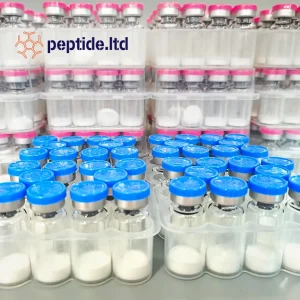CJC-1295, a synthetic analog of growth hormone-releasing hormone (GHRH), has increasingly piqued interest for its prospective anti-aging advantages. This peptide acts by stimulating the pituitary gland to discharge more growth hormone, which plays a pivotal role in cellular rejuvenation, metabolism, and maintaining muscle mass. A report published in the Journal of Clinical Endocrinology & Metabolism demonstrated subjects obtaining CJC-1295 experienced a 2-10 fold surge in growth hormone levels sustained over a 6-day duration, indicating a prolonged impact compared to natural GHRH.
One of the key questions surrounding CJC-1295 relates to its safety profile. In clinical environments, CJC-1295 has generally been endured, with most adverse outcomes being mild and fleeting. Declared secondary effects include injection site reactions, flu-like indications, and in scarce cases, water retention. These effects are frequently dose-reliant, meaning meticulous management of measurement can mitigate most hazards. The peptide's half-life of approximately 8 days allows for less frequent dosing, which can decrease the possibility of secondary effects compared to other growth hormone-stimulating therapies that necessitate daily management.
The expense of anti-aging therapies, specifically those involving growth hormone, can be significant. Traditional human growth hormone (HGH) treatment can cost upwards of $1,000 to $2,000 per month. In contrast, CJC-1295, with its expanded duration of action and potentially lower dosing regularity, could offer a more cost-effective alternative while delivering analogous benefits. This cost efficiency might render it more accessible to a broader audience seeking anti-aging interventions.

Industry specialists and researchers are paying close attention to CJC-1295's potential in the anti-aging market. Dr. Richard Walker, an authority in anti-aging research, noted, "The ability of CJC-1295 to enhance growth hormone secretion without the need for daily injections could represent a meaningful advancement in anti-aging therapies." Such endorsements highlight the developing interest in this peptide as a viable option for those looking to mitigate the effects of aging.
To understand the historical context, one can compare the current interest in CJC-1295 to the early days of cosmetic botox treatments. Originally met with skepticism, botox eventually gained widespread acceptance as its safety and efficacy were validated through clinical studies and real-world use. Similarly, as more data on CJC-1295 emerges, its role in the anti-aging market could expand, offering a safer and more convenient alternative to traditional growth hormone therapies.
For those exploring anti-aging options, CJC-1295 presents a promising solution supported by scientific research and expert opinions. As studies continue to validate its benefits and safety, CJC-1295 may well become a cornerstone in the field of anti-aging treatments, offering a safer, more affordable alternative to conventional growth hormone therapies.